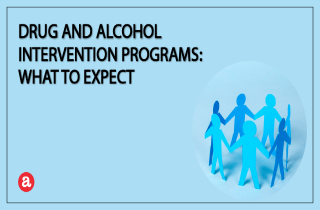For some people, drug and alcohol intervention programs may be a last effort to get their loved ones into treatment. But drug and alcohol intervention programs can help individuals who need to get their addicted loved ones into treatment. These programs are designed to help loved ones through every step of an intervention, from planning to treatment afterward.
What can you expect during a drug and alcohol intervention program? We review here. Then, we invite your questions about planning an intervention at the end.
What to expect before drug and alcohol intervention programs
1. Planning who will participate
Before a drug and alcohol intervention, a great deal of planning is essential. There are people specialized in interventions that you can contact, since they already know what they are doing, it can result in less stress and more success. You will need to decide who will participate in the intervention, for instance. Keep in mind, though, that anyone who joins or condones an addict’s substance abuse should not be included in the intervention.
2. Planning a place and time
A place and time should also be decided upon for an intervention. It’s important to choose a place that offers a great deal of privacy, such as your home or the addict’s home. You should also choose a time when the addict will be sober, since he or she will be more lucid and likely to consider treatment.
3. Planning what to say
Before a drug and alcohol intervention, each member of the intervening group should plan what they will say. Many people find it helpful to write down their statement before a drug and alcohol intervention and simply read it to the addict during the intervention.
4. Planning addiction treatment
Finally, treatment should be prearranged for the addict. Other arrangements, such as childcare, should also be prearranged. The easier it is for an addict to go through treatment, the more likely he or she will be to comply.
5. Consider a motivational approach
There is increasing interest in a new model for intervention called “CRAFT”, or Community Reinforcement Approach and Family Training. Instead of confronting an addict or alcoholic, you work with a therapist to identify ways to motivate treatment.
No one has better information about an addict’s behavior patterns than a close family member. CRAFT teaches family members and loved one how to use this information in a motivational way to increase the chance of an addict or alcoholic entering treatment. In addition to motivation building, family members who use the CRAFT model learn about safety, functional analysis, contingency management, communication, and life enrichment skills.
6. Seek professional help if needed
If you need to know what to expect before a drug and alcohol intervention, programs at a local addiction treatment facility, clinic, or hospital can be a great help. These facilities can usually put you in contact with an experienced intervention specialist. Professional intervention specialists can help you stage an intervention as well as set up treatment for your loved one.
What to expect during drug and alcohol intervention programs
To start an intervention, the addict must be at the right place at the right time. Oftentimes, one or more members of the group are responsible for this task. This can usually be accomplished by extending an invite for a get together or physically accompanying the addict to the meeting site. During a drug or alcohol intervention program, you can also expect:
- Irritation – During a drug and alcohol intervention, an addict may become irritated. It’s important to keep him or her calm by reassuring them that you care for and respect them. Remind your loved one that the intervention is for their own good.
- A time for sharing – Once the addict is calm and attentive, each member of the group should take turns speaking to the addict. When speaking to the addict, factual information about the addict’s substance abuse and how it has affected themselves and everyone around them should be used. Emotional outbursts and judgmental statements should be avoided, as these actions can cause resentment and defensiveness.
- An ultimatum – An intervention will usually end with the group giving the addict an ultimatum. If the addict refuses to seek treatment immediately, for instance, loved ones will stop enabling the substance abuse. This may include removing financial support or even excluding them from the family until they enter treatment.
What to expect after drug and alcohol intervention programs
It’s difficult to know what to expect after drug and alcohol intervention programs. Some addicts, however, will comply and go into treatment immediately. If an addict refuses, though, you and anyone else involved in the intervention should be prepared to follow through with the consequences you presented. This will most likely be difficult, but it’s absolutely necessary. By enabling the addiction, you are sending a message that substance abuse is acceptable, and the addict may never seek treatment. If you follow through, there’s a good chance that they will eventually turn to you for help getting into a treatment program.
Drug and alcohol intervention program questions
Do you need help staging an intervention? Have you already staged an intervention and want to share some tips? We’d love to hear from you. Leave a comment below, and we’ll address each of your questions, concerns, or experiences as soon as we can.









Related Posts